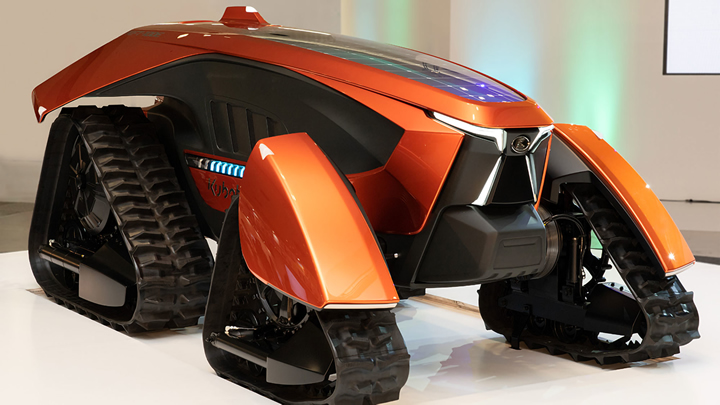Electric Vehicles in Agriculture: Now Is the Time, Reports IDTechEx

Cars electrify, now farm vehicles. The new 215-page IDTechEx report, "Electric Vehicles and Robotics in Agriculture 2020-2030" explains. This is a drill-down from the popular report, "Electric Vehicles in Construction, Agriculture and Mining 2020-2030". Even in the most advanced countries, few farms can provide the power to fast-charge a Tesla or an electric tractor, let alone large farm vehicles. All the same, many agricultural vehicle makers are going electric because the charging capability, affordability and other factors are rapidly falling into place just as they are for road vehicles.
For example, farm electricity can now follow the robots. Renovagen sells a microgrid that, from the back of a farm truck, unrolls its solar cells like a carpet along a field and eWind develops tethered drones generating similar 30kW levels of electricity from the wind, specifically targeting farmers.
As with cars, we have had the phase of electric variants of farm vehicles based on existing platforms and therefore not very successful but Kubota and John Deere newly have "born electric" concept tractors reading to the strengths by being robotic with triangular tracks.
Lower cost of ownership is compelling but lower up-front cost is the killer blow, part of the reason why small outdoor and greenhouse agrirobots are all electric: price parity comes first with small vehicles. They pick fruit more gently, minimise poisons, increase yields. The report embraces farming, forestry and turf care in the form of manned electric vehicles and robotics. See new infograms, graphs and timelines for the present - including much news from 2020 - and future. Grasp the challenges of this industry from Japan and China to the UK and USA, the remarkable new technologies and systems approaches being adopted and what comes next.
This report assists all in the value chain. Electrification and robotics go together. Their effect is pivotal. Up-to-date interviews, analysis and forecasts were prepared by multi-lingual IDTechEx analysts at PhD level across the world. Presented without equations, the emphasis is commercial, not academic.
The 34-page Executive Summary and Conclusions is sufficient for those in a hurry, with a critical appraisal listing 14 forces on the industry, seven reasons for going electric being compared, two infograms of the farm of the future, detail on main trends such as precision and ultra-precision farming, 18 primary conclusions brought alive with tables and graphics, adoption timelines, patent trend graph. See 16 categories forecasted by units, unit price and market value 2020-2030.
The Introduction then looks at problems, needs, emissions, water shortage, food demand increase and change in mix, regional differences in crops and approaches, crop yield and farmer age, wage and tractor purchasing trends. Here is the electric vehicle powertrain choice emerging and types becoming favoured in agriculture all being mainly in pie charts, graphs, tables and infograms.
Chapter 3 concerns Opportunities. See the example of UK compared with Japan, the economics of agricultural machines, the interest in small, even swarming robots in fields and precision forms indoors. The value chain and robotics as a service are analysed. Chapter 5 brings it alive with over 70 organisations making or developing electric and robotic vehicles for agriculture, forestry, turf electric vehicles compared. Specific comparisons include lawnmowing robots and weeding robots for farms, for example. Electric tractors are a particular focus with seven illustrated case studies. Planters, transporters, and forestry are also illustrated and there are critical comparisons throughout.
Chapter 6 scopes the six key enabling technologies with the seventh - autonomy - being the subject of Chapter 7. "Electric Vehicles and Robotics in Agriculture 2020-2030" will be the reference book of this industry, updates being regularly incorporated as the subject is now changing rapidly. For those wanting deeper technology analysis and forecasts for certain aspects, there is the IDTechEx report, "Agricultural Robots, Drones, and AI: 2020-2040: Technologies, Markets, and Players".
For more information on this report, please visit www.IDTechEx.com/AgriEV or for the full portfolio of research available from IDTechEx please visit www.IDTechEx.com/Research.
IDTechEx guides your strategic business decisions through its Research, Consultancy and Event products, helping you profit from emerging technologies. For more information on IDTechEx Research and Consultancy, contact research@IDTechEx.com or visit www.IDTechEx.com.
Comments (0)
This post does not have any comments. Be the first to leave a comment below.
Featured Product

